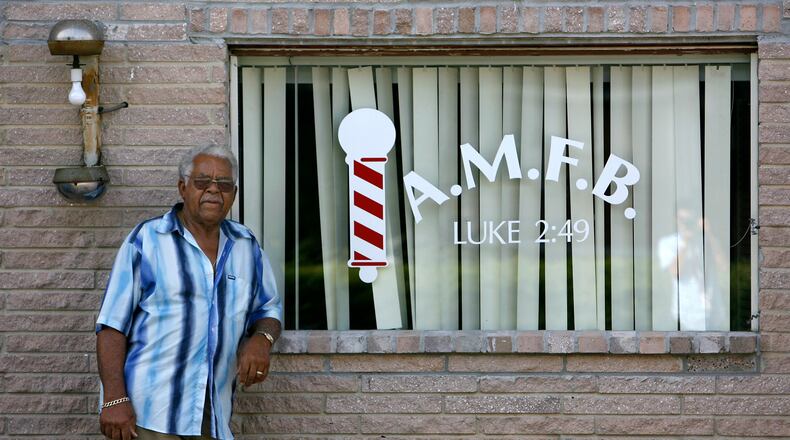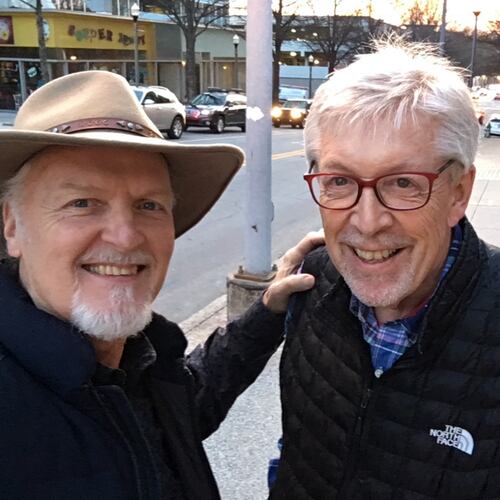Thomas Livsey built his birthplace in Gwinnett County’s “Promised Land” into a thriving Black community, but he didn’t live to see it turned into a county park and permanent snapshot of the segregated South.
But he never gave up trying.
“He was so persistent in his pursuit of what he thought the community needed, and I’m not sure anything better can be said about an individual,” said Charlotte Nash, Gwinnett County Commission chairman from 2011 through 2020 and now president of the county’s historical society.
Thomas Livsey, family man and businessman with deep roots in the community and holder of the unofficial title of Mayor of the Promised Land/Centerville in south Gwinnett, died Tuesday. He was 93.
A funeral service will be at 11 a.m. on Dec. 16 at New Bethel AME Church, 8350 Rockbridge Road, Lithonia, said Dorethia Livsey, his wife of 68 years.
Thomas Livsey is credited with transforming the Promised Land area into a thriving center of Black life, not just for the local community but the entire region, with 14 different homes for siblings and others, as well as a grocery store, laundromat, restaurant, and several other businesses.
The “Big House,” where Livsey was born, was the original home that slaveowner Thomas McGuire built in the 1820s on his plantation. Robert Livsey, Thomas Livsey’s father, bought the Big House and about 100 surrounding acres in the early 1920s, with money saved from his railroad job.
Thomas Livsey sold the Big House to Gwinnett County in 2017 with the hope that it would be restored and tell his family’s story, his widow and grandson said.
“He was a legend in his own time,” running the grocery store in the Promised Land for about 20 years, she said.
Nash said the county considered the Big House a significant part of the history of that part of Gwinnett County.
“And we wanted to make sure it was preserved,” she said. “I’m not aware of any discontent at that point. Perhaps, it developed later.”
Controversy arose this year after the county approached the Livsey family about buying two of its additional properties near the Big House. When the Livseys refused to sell, the county threatened to take the land through eminent domain, the authority a government has to force landowners to sell.
Members of the Livsey family argued that the county planned to pay less than what they believed the land was worth and that the county was only threatening eminent domain because the family was Black. After a firestorm erupted on social media, the county pledged to the family not to pursue the idea.
“That would have been an injustice,” Livsey’s widow said.
Prominent historian Ruth Abram, who was hired to help design a museum at the former plantation house, also suggested that a top county department head wanted to “whitewash the story” of slavery on the plantation. Abram, a self-described descendent of slaveowner Thomas McGuire, said her interactions with Tina Fleming, the county’s community services director, went so poorly that she is no longer working on the project.
In September, Derrick Wilson, a member of the Gwinnett County Recreation Authority, resigned, saying he had been disheartened for months over how the county is handling the restoration of a former plantation house, sometimes called the Maguire-Livsey Big House.
Nicole Love Hendrickson, current county commission chair, issued a statement Thursday about Livsey’s death, calling him a “true giant,” “esteemed patriarch,” and “enduring community leader.”
“Mr. Livsey’s impact as a positive force and guiding light resonates in the collective spirit of our community,” she said. “His legacy is an everlasting presence, a testament to a legacy that will endure for generations.”
Grandson Chad Livsey said his grandfather never wanted to sell the property that the county was threatening to take by eminent domain, where there’s a lake and an apartment building. He said, his understanding was that the county wanted to turn the property into the Promised Land plantation with slave quarters and vegetation from the time period.
“But it excludes our story of living longer than Thomas McGuire was there, being entrepreneurs and helping to build the southern part of Gwinnett County,” said Chad Livsey. “The process hurt not just him but the whole family. It’s been a real strain.”
After serving in the Korean Conflict, Thomas Livsey lived with his wife and family in Chicago. After his father’s death, he moved back to South Gwinnett and made the Promised Land his life’s work, his family said.
About the Author
Keep Reading
The Latest
Featured

